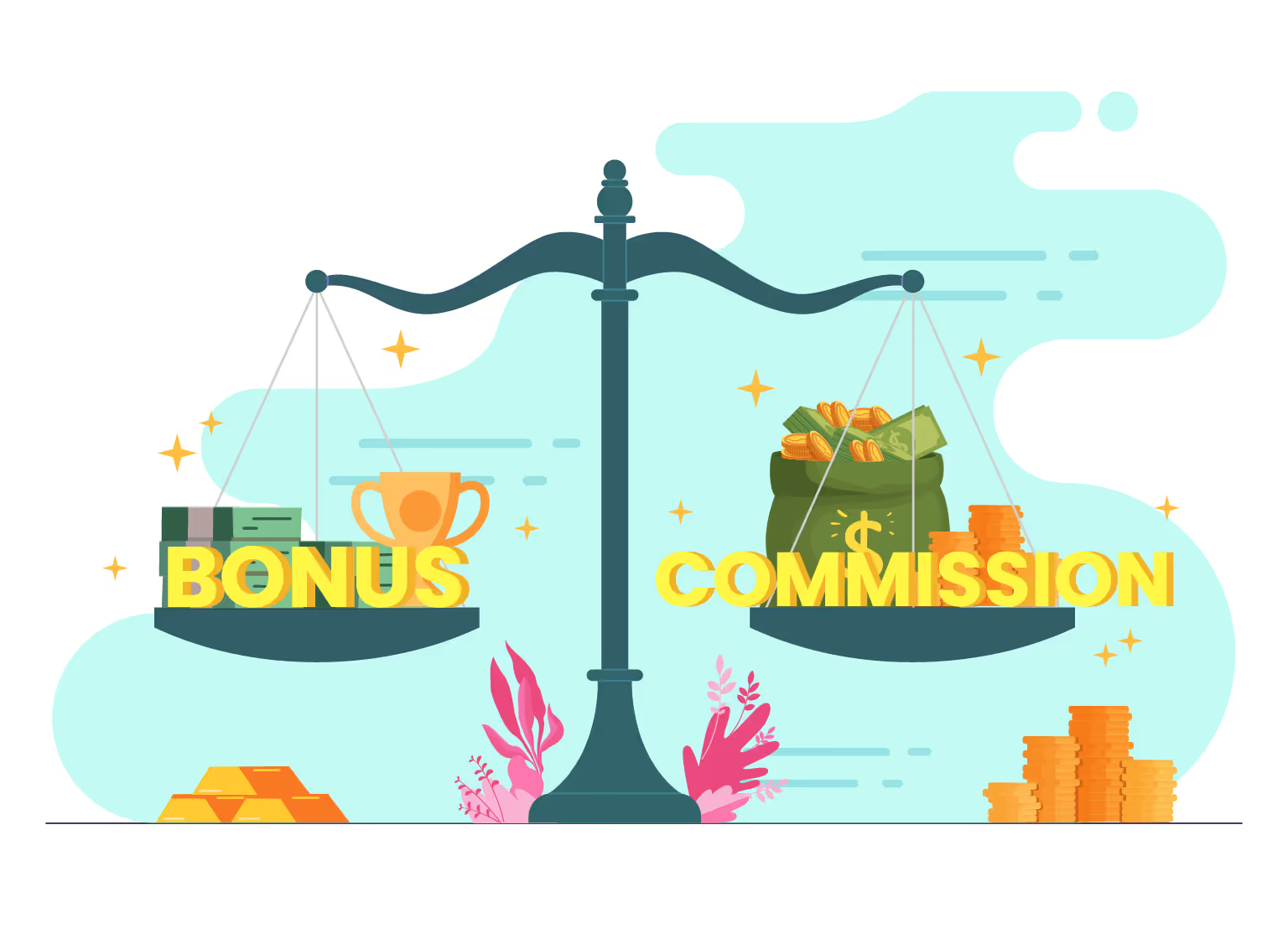
Blog
Bonus vs Commission: Which Incentive Structure Is Right for Your Sales Team?
May 19, 2023


Key Insights
When it comes to compensating your sales team, the structure you choose can significantly impact both motivation and performance.
Two of the most common forms of incentive compensation are bonuses and commissions. Each has its unique characteristics, benefits, and considerations.
In this blog, we will explore how bonuses and commissions work, their advantages, the important factors to consider, and how they differ from each other.
Ultimately, we'll help you determine the best compensation strategy for your sales team, ensuring it aligns with your business objectives and supports your team's success.
Understanding Bonuses
Bonuses are typically seen as a reward for employees' hard work, dedication, or achieving certain targets.
They are usually given in addition to a fixed salary and can be based on individual, team, or company performance.
Bonuses can come in many forms: end-of-year bonuses, performance bonuses, or even ad-hoc rewards for exceptional work.
They're a great way to boost morale and motivate employees, showing them that their efforts are recognized and valued.
Advantages of Bonuses
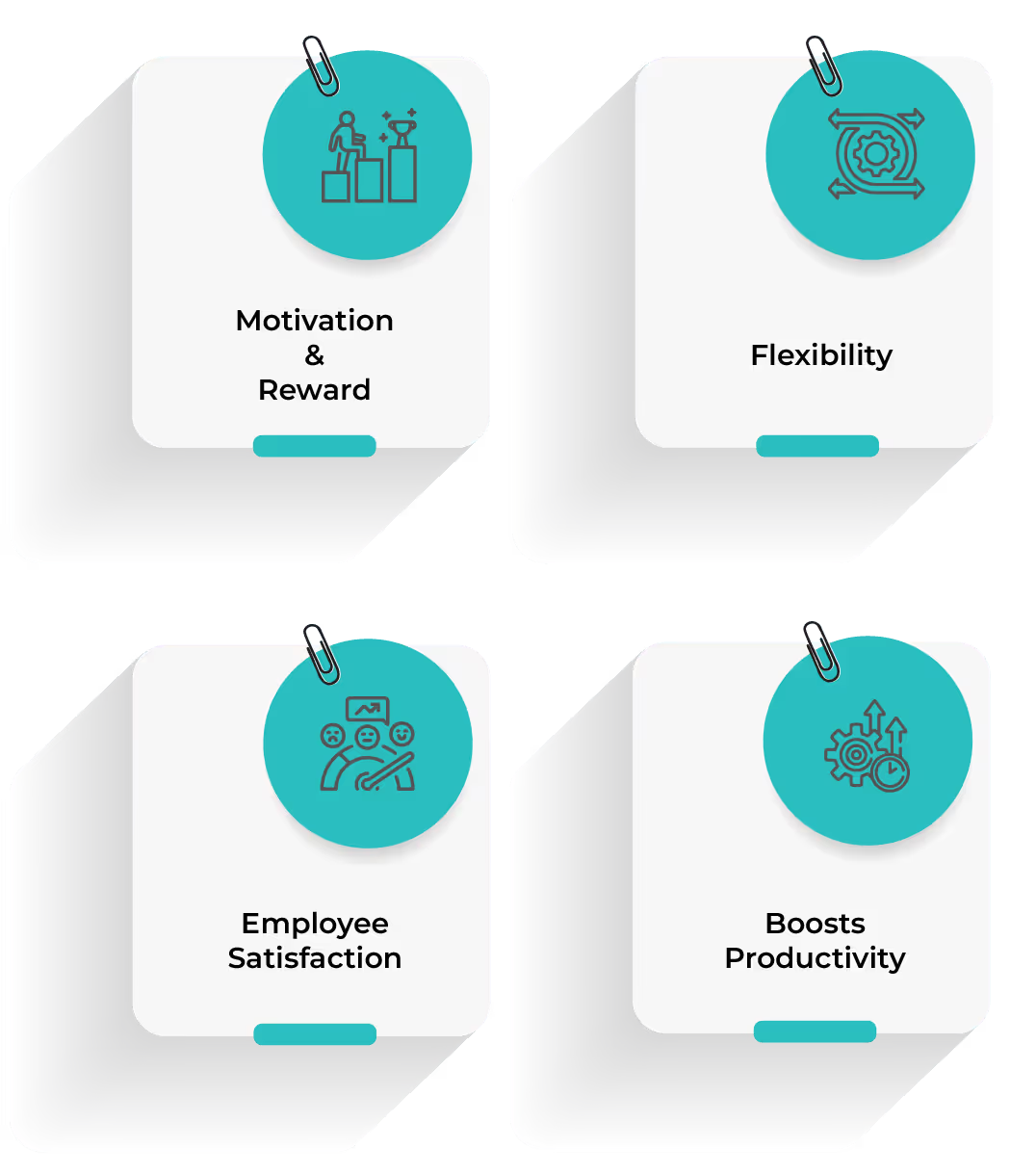
Bonuses offer several benefits to both employees and employers. Here are some key advantages:
Motivation and Reward
Bonuses act as a strong incentive for employees to exceed their goals, knowing that there's a tangible reward at the end.
Flexibility
Employers can decide when and how much to give, allowing them to manage financial expenditures more efficiently while still rewarding employees.
Employee Satisfaction
Receiving a bonus can significantly increase job satisfaction and loyalty, reducing employee turnover.
Boosts Productivity
The potential of earning extra money motivates employees to work harder, which can lead to increased productivity and better overall performance.
Considerations for Bonuses
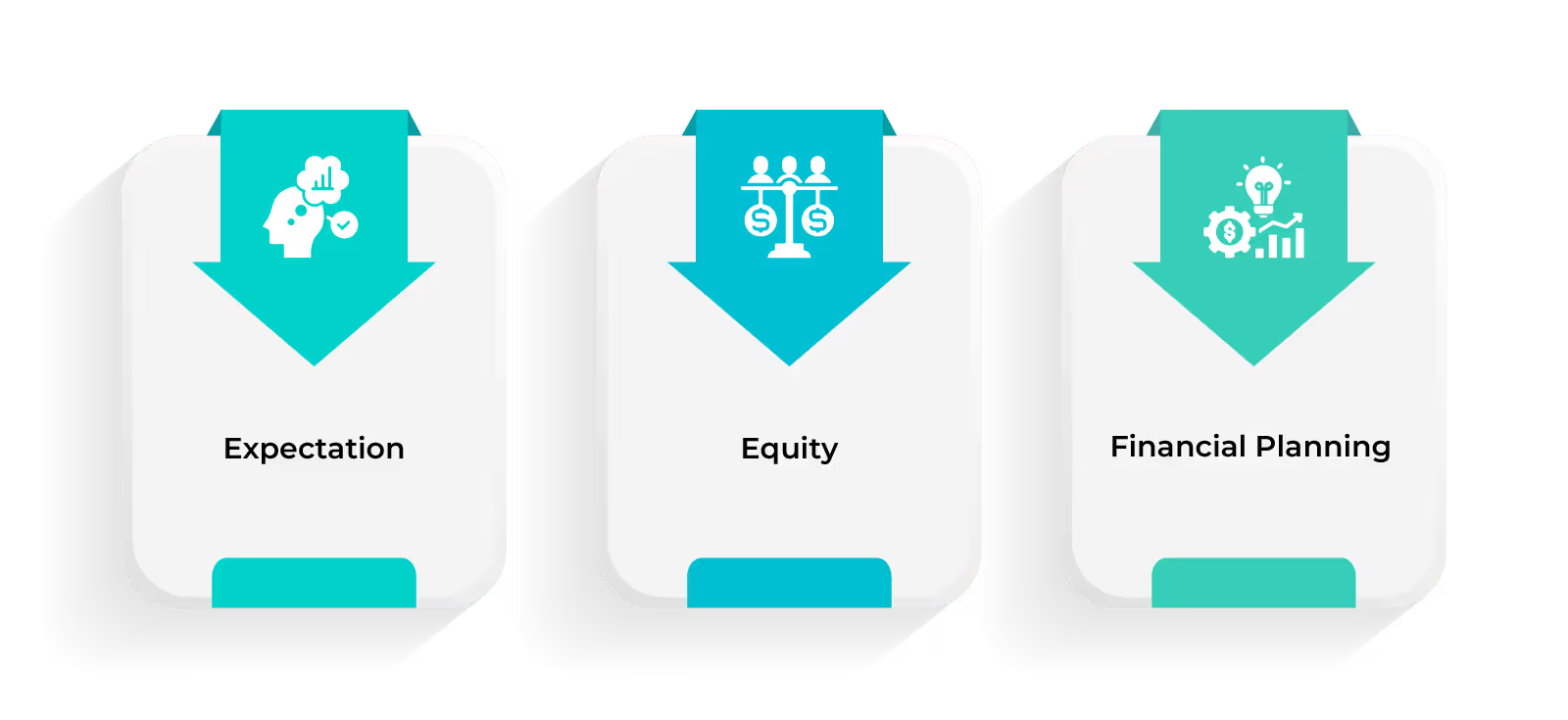
When implementing a bonus strategy, there are several factors to consider to ensure its effectiveness:
Expectation
Regular bonuses might become expected, and their motivational effect could diminish over time.
Equity
It's crucial to ensure that the bonus distribution is fair and transparent to avoid any feelings of inequality or resentment among the team.
Financial Planning
Relying too much on bonuses can be risky if the company faces financial difficulties. It’s important to balance them with other types of compensation.

Understanding Commissions
Commissions are usually linked directly to the results an employee achieves, commonly found in sales roles.
This type of compensation is variable and is typically a percentage of the sales an employee makes.
It directly ties an employee's earnings to their performance, providing a clear, quantifiable incentive to increase sales.
Commissions can be structured in various ways—fixed percentage, sliding scale based on targets, or a combination with a base salary.
Advantages of Commissions
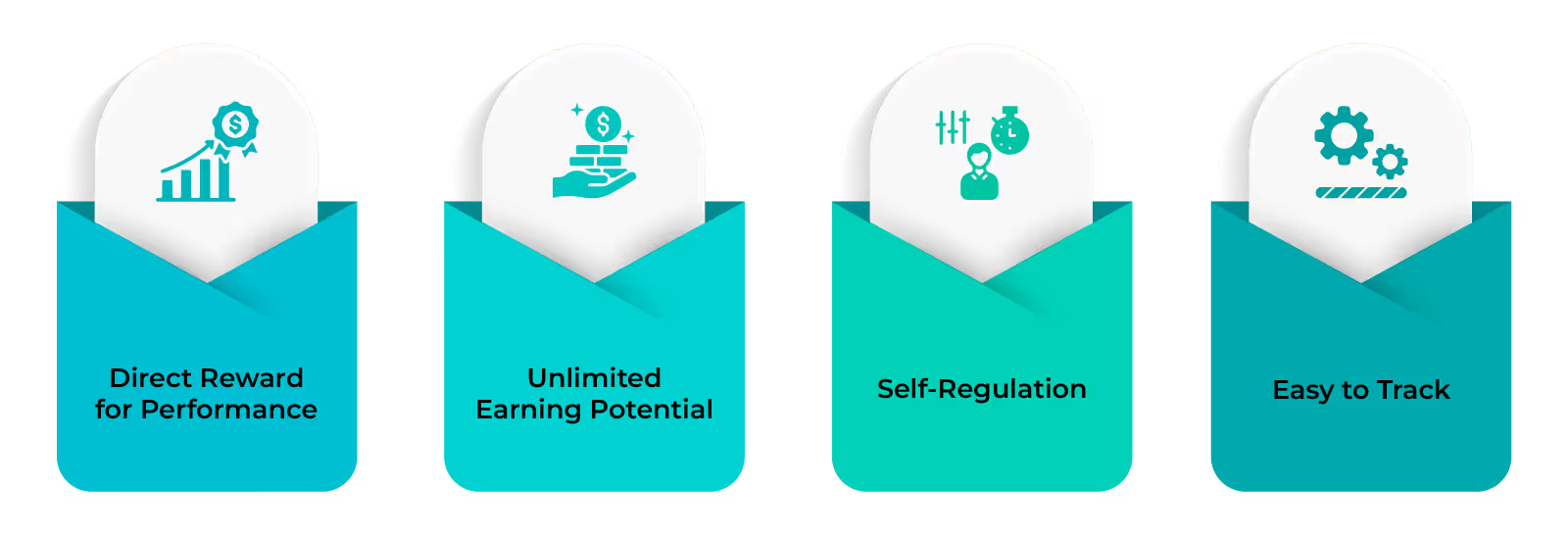
Commissions are closely tied to sales performance, making them a highly motivational tool for sales personnel. Here’s why they can be particularly effective:
Direct Reward for Performance
Since commissions are earned based on sales, they directly reward high performance, aligning employee incentives with company goals.
Unlimited Earning Potential
Commissions often do not have a cap, which means there is no limit to how much one can earn, driving salespeople to work even harder.
Self-Regulation
Employees on commission tend to regulate their own performance, striving to maximize their earnings by optimizing their sales strategies and efforts.
Easy to Track
Commissions are straightforward to calculate and track, making it easy for both employees and management to understand earnings and performance metrics.
Considerations for Commissions
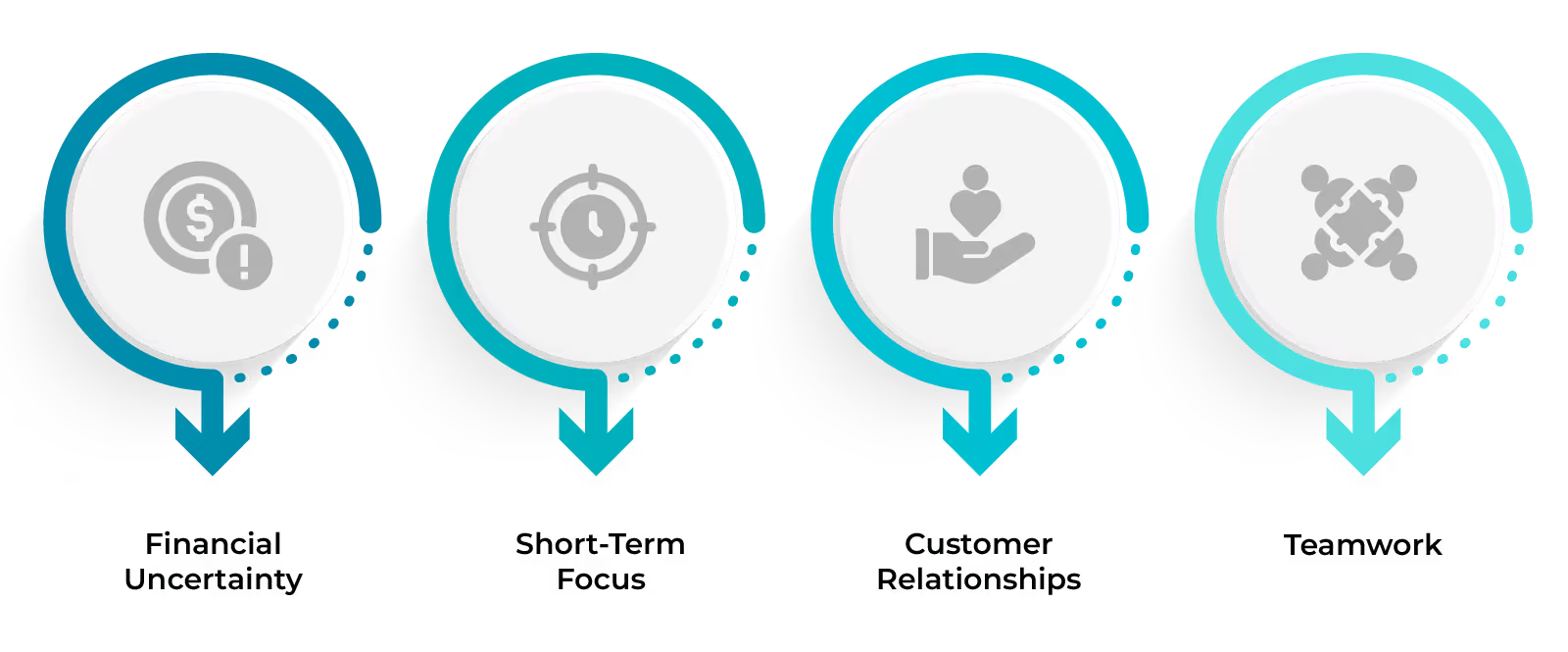
While commissions can drive sales and motivate employees, they come with their own set of considerations that need careful management:
Financial Uncertainty
Relying solely on commissions can make employees' income very unpredictable, which might be stressful for some.
Short-Term Focus
Salespeople might focus too heavily on short-term gains rather than long-term strategic goals, possibly neglecting broader business objectives.
Customer Relationships
There's a risk that salespeople might push products more aggressively, which could lead to negative experiences for customers.
Teamwork
High commission structures can sometimes discourage teamwork, as employees may be more focused on individual gains rather than collaborative success.
The Difference Between Bonuses and Commissions
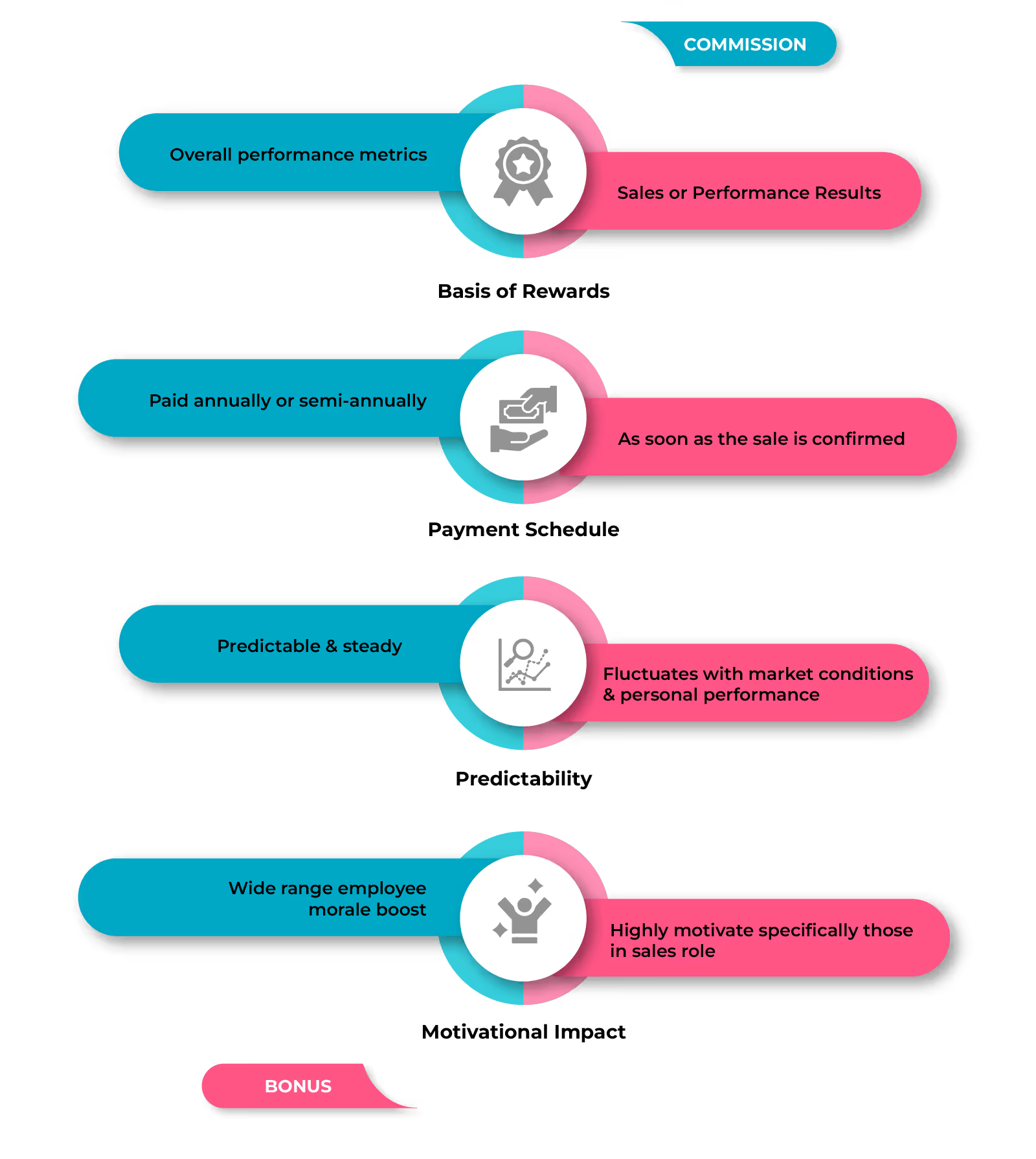
Understanding the key differences between bonuses and commissions can help you design a more effective compensation plan:
Basis of Reward
Bonuses are typically based on overall performance metrics and can be discretionary, while commissions are strictly tied to sales or performance results.
Payment Schedule
Bonuses are usually paid annually or semi-annually, whereas commissions are paid out as soon as the sale is confirmed.
Motivational Impact
Bonuses can boost morale across a wider range of employees, while commissions highly motivate specifically those in sales roles to directly increase revenue.
Predictability
Bonuses can be more predictable and steady if set as part of employment terms, whereas commissions fluctuate with market conditions and personal performance.
Heard about Annual Incentive Plan? Know more from What are Annual Incentive Plans, Everything you Need to Know.
Finding the Right Fit for Your Sales Team
Choosing the right compensation structure for your sales team requires a good understanding of your business goals and the dynamics of your team.
Here is a quick checklist to find the best fit:
Assess Your Sales Cycle
Longer sales cycles might benefit more from a combination of base salary and bonuses, while shorter, transaction-based sales could be well-suited to commissions.
Consider Team Structure
If your team heavily relies on collaboration, leaning too much on commissions might harm teamwork. A balanced approach with bonuses for team achievements might work better.
Evaluate Market Norms
Look at what is standard in your industry. Being too far off the norm can make it difficult to attract or retain talent.
Flexibility and Adaptability
Consider starting with a flexible plan that can be adjusted as you learn what works best for motivating your team and driving business results.
By carefully evaluating each of these factors, you can create a compensation system that not only motivates your sales team effectively but also aligns with the strategic objectives of your business.
Which is Better for Employees: Bonuses or Commissions?
When it comes to rewarding employees, the debate between bonuses and commissions can be quite lively!
Bonuses are typically seen as a reward for meeting team or company-wide objectives, and they can significantly boost morale by giving employees a tangible reward for their collective success.
On the other hand, commissions are directly tied to individual performance, usually in sales roles. With commission, there is an opportunity for earning uncapped commissions which can immensely motivate employees to maximize their output.
Deciding which is better largely depends on the nature of the work and the company culture.
Bonuses may be more inclusive, fostering teamwork and a sense of unity, while commissions can drive high performance and personal accountability.
Each has its place, and the right choice can align with your strategic goals and encourage the behaviors that lead to business success.
Now if you wish to go the extra length to find the right incentive for your employees, a third option might also work- negative incentive examples. To read more about it, check Negative Incentive Examples: How to use them?
Are Bonuses and Commissions Taxed Differently?
Navigating the tax implications of bonuses and commissions is crucial for both employers and employees.
In many regions, both bonuses and commissions are treated as supplemental income and are subject to similar tax rules.
However, the rate at which taxes are withheld can differ.
For example, in the United States, both bonuses and commissions are subject to federal withholding at a flat rate, potentially different from an employee's regular withholding rate.
It's important for businesses to consult with tax professionals to understand how these payouts are taxed in their specific jurisdiction and communicate this clearly to employees to avoid surprises come tax season.
What Do Bonuses and Commissions Mean for Payroll?
For payroll departments, bonuses and commissions mean more than just calculating payments.
They must ensure that these forms of compensation are processed accurately and in a timely manner, considering not only the correct amounts but also the appropriate tax withholdings and deductions.
Handling bonuses and commissions efficiently requires robust payroll systems and clear policies.
Payroll software that can automate these calculations and integrate them seamlessly into the overall payroll process can significantly reduce errors and administrative overhead.
How to Offer Employee Bonuses Across Globally Distributed Teams
Offering bonuses to a globally distributed team presents unique challenges, from currency conversions to varying legal requirements in each country.
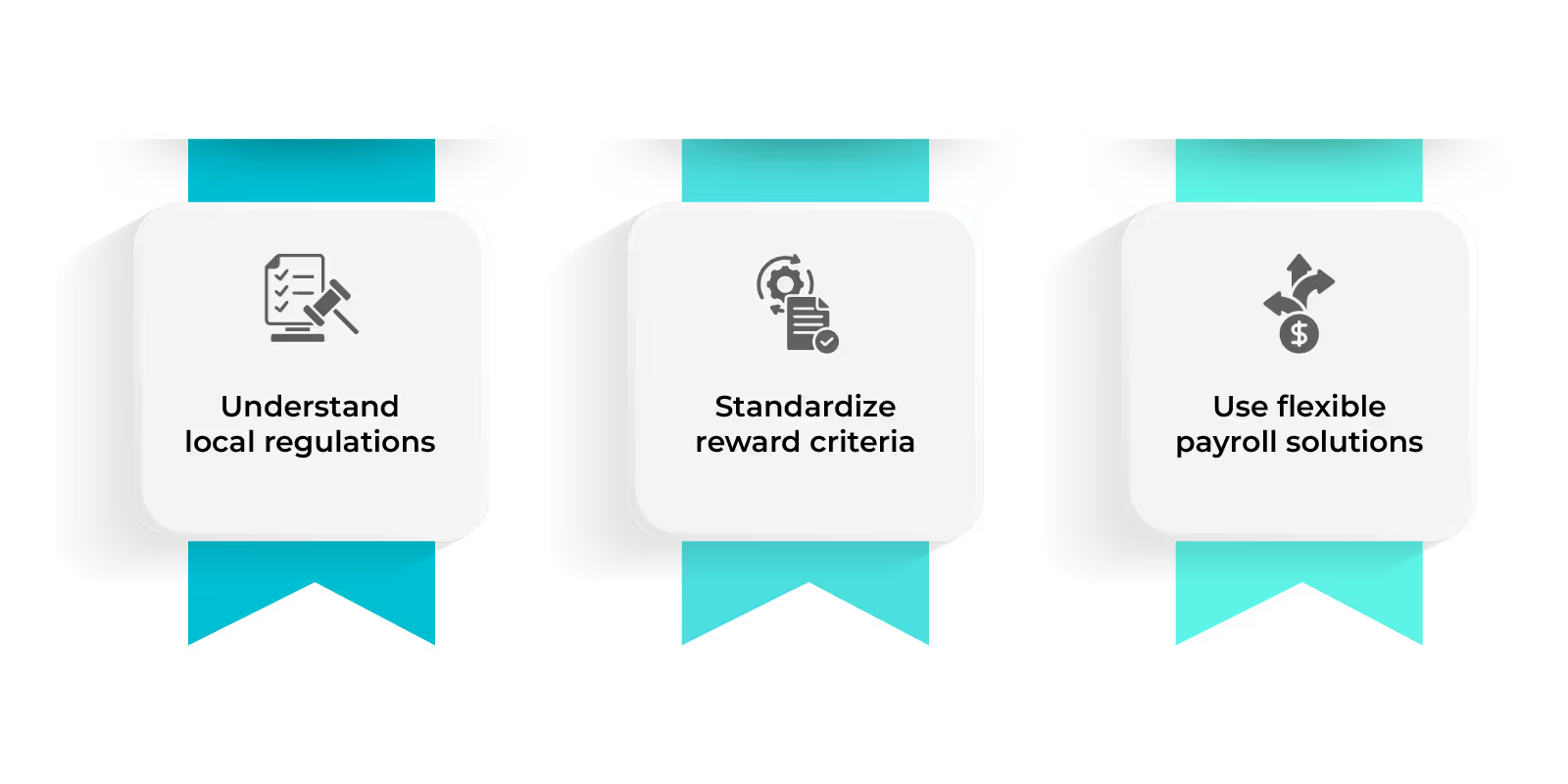
To manage this effectively, remember three crucial steps:
Understand local regulations
Each country will have its own legal framework for bonuses. Compliance is non-negotiable.
Standardize reward criteria
Establish clear, equitable criteria for what merits a bonus across all locations to ensure fairness.
Use flexible payroll solutions
Employ technology that can handle multiple currencies and adapt to different tax systems to streamline bonus payments.
With careful planning and the right tools, bonuses can be a powerful tool for motivating and rewarding a globally diverse workforce.
Make Payouts Right Every Time with Kennect
Ensuring that your team members receive their bonuses and commissions accurately and on time is crucial.
That's where Kennect comes in. Our solution is designed to simplify complex payroll processes, ensuring every payout is correct.
With features like AI-powered Nudges, ELT Calculation engine and our Intuitive Scheme Builder, Kennect ensures that rewarding your team is as satisfying for them as it is for you.
Explore our website for more information, and book a demo to learn more!
ReKennect : Stay ahead of the curve!
Subscribe to our bi-weekly newsletter packed with latest trends and insights on incentives.
Thank you! Your submission has been received!
Oops! Something went wrong while submitting the form.
Your data is in safe hands. Check out our Privacy policy for more info




.avif)









